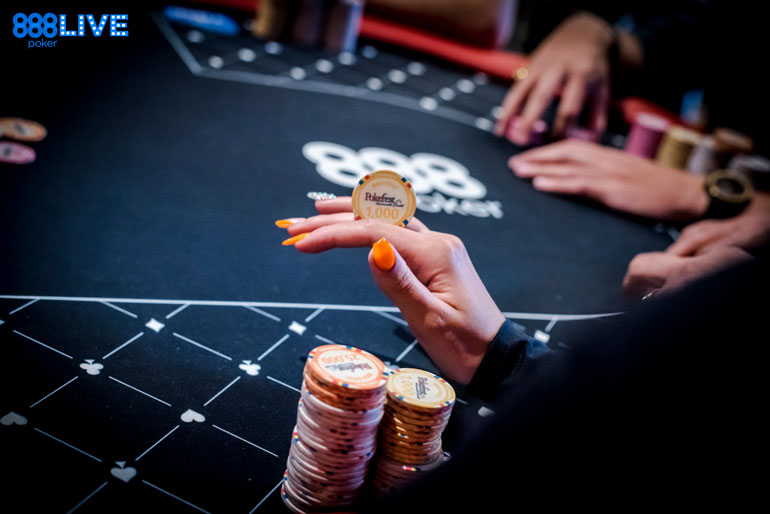To be a great poker player, you must devote time and energy to learning strategy, developing your mental game, and managing your bankroll. All three are vitally important to your long-term poker success, but bankroll management is the unsung hero of poker. It may not be as exciting as learning a fancy new play or running an intricate bluff, but trust me; it's a crucial piece of the puzzle for your overall success.
While newer players often overlook it, experienced poker pros know that bankroll management is the secret sauce. It's the foundation of a solid poker career, and maintaining a healthy bankroll is essential for long-term success and sustainability in the game.
This article will explore the significant role of psychology in poker bankroll management and provide actionable tips to help you manage your funds and emotions on the poker journey.
The Role of Emotions in Poker Bankroll Management
Emotions are significant in every aspect of our lives, and poker is no exception. When money is at stake, emotions can cloud our judgment and lead to impulsive decisions. Emotions play a significant role in the decision to play outside of one's bankroll, and this is where the dangers of tilt and overconfidence come into play. Here are some common psychological issues that can impact bankroll decisions:
Overconfidence:
After experiencing a winning streak or a particularly profitable session, players may feel a surge of overconfidence. This emotional high can lead them to believe that they can easily take on higher-stakes games, even if their bankroll doesn't entirely support it. Overconfidence can cloud judgment, leading players to underestimate the risks of playing above their means.
Chasing Losses:
On the flip side, emotions can lead players to chase losses when they're on a downswing. Feeling frustrated or anxious after a series of losses, some players may decide to "take a shot" at higher-stakes games, hoping for a big win to recoup their losses quickly. However, this emotional decision can compound the problem and potentially lead to even more significant losses.
Fear of Missing Out (FOMO):
Seeing others play higher-stakes games (seemingly having great results) can trigger a fear of missing out. Players may feel pressured to jump into those games, even if their bankroll isn't big enough. FOMO can override rational decision-making, and players may ignore the potential risks involved in playing above their bankroll.
A Desire for Validation:
Some players seek validation or recognition from their peers or themselves by playing at higher stakes. The belief that playing at higher levels signifies skill and success can be a powerful emotional driver, causing players to take unnecessary risks.
Ego and Pride:
Poker players can be competitive by nature, and their ego and pride can influence their decisions. The desire to prove oneself as a skilled player can lead to playing at higher stakes to demonstrate prowess, even if the bankroll needs to be increased.
On the other side of the emotional coin is a psychological phenomenon called loss aversion. This psychological phenomenon describes how humans feel the pain of losses more intensely than the pleasure of equivalent gains. In poker, loss aversion can lead to players avoiding necessary risks by playing too snugly or using other unprofitable strategies (e.g., limping with good hands instead of open-raising) to prevent potential losses. Unfortunately, this approach can be highly detrimental to your long-term bankroll growth.
As you can see, emotions can cloud a player’s judgment and lead to poor decisions. Playing above one's bankroll is risky because it can lead to significant losses and in the worst-case scenario: financial ruin. But playing too small/tight can also impede your bankroll’s growth. Effective bankroll management requires emotional discipline and detaching oneself from short-term emotional swings, and luckily, you can use several strategies to do these things.
Managing Your Emotions in Poker Bankroll Management
The first step in counteracting the negative influence of emotions is to recognize the importance of bankroll management and stick to stakes matching your bankroll capacity.
As a rule of thumb, it is advisable to have at least 20-30 buy-ins for cash games and 100-200 buy-ins for tournaments. Adhering to these guidelines ensures you’ll (likely) have enough funds to weather poker's inevitable ups and downs.

What should you do if you fall below these guidelines? This is where a stop-loss limit can come into play. A stop-loss in poker is a predetermined limit that you set to cap losses during a poker session or a specific period of time. It's like having a safety net that prevents you from going too deep into the red. When you reach your stop-loss limit, you call it a day and walk away from the poker table. Doing this can help you maintain a cool head and protect your bankroll, which will help you set yourself up for long-term success.
Combatting Loss Aversion:
To combat loss aversion tendencies, you should train yourself to focus on making decisions based on expected value (EV) instead of looking at whether or not a specific hand won or lost in a particular spot. EV is a mathematical calculation considering the probability of winning or losing a hand over the long run. When you base your decisions on expected value, you're looking at the bigger picture and making statistically profitable choices in the long run.
It’s also essential to train your mind to accept that short-term fluctuations are a natural part of poker. We simply set ourselves up for failure when we refuse to accept this.
Smart Game Selection:
The importance of game selection cannot be overstated. Factors to consider include: skill level of opponents, table stakes, and your level of expertise. You can increase your chances of profitable sessions and reduce unnecessary risks by selecting games matching your skill level and bankroll capacity.
Coping with Variance and Downswings:
Even the most skilled players experience downswings and temporary setbacks; these natural fluctuations in poker outcomes are called variance. Understanding and accepting that variance is a normal part of the game helps players maintain perspective during challenging periods.
If you’re on a downswing, it is crucial that you remain composed and avoid making emotionally-driven decisions that could further deplete your bankroll. Taking breaks, reviewing hand histories, and seeking support from fellow players can help you maintain confidence while building your strategy skillset. A solid support system and a positive mindset can help you through a rough patch.
The Importance of Regular Bankroll Evaluation:
You must conduct periodic reviews of your overall performance to identify trends and areas for improvement. Are there any leaks in your strategy? Do you need to make adjustments (either to your gameplay or to your game selection)? Is it time to move up in stakes? Or down? These are the types of questions you should be considering regularly. Doing so will help you to maintain a proper bankroll.
Conclusion
Bankroll management is not just about crunching numbers; it's also about understanding and controlling the psychological aspects that influence our decisions. You can improve your chances of success and longevity in the game by mastering emotional discipline, setting realistic goals, and implementing effective bankroll management techniques. Remember, poker is a long-term pursuit and cold hard cash is your working capital. With the right psychological tools and strategies, you can confidently navigate the highs and lows while building a sustainable bankroll over time.


